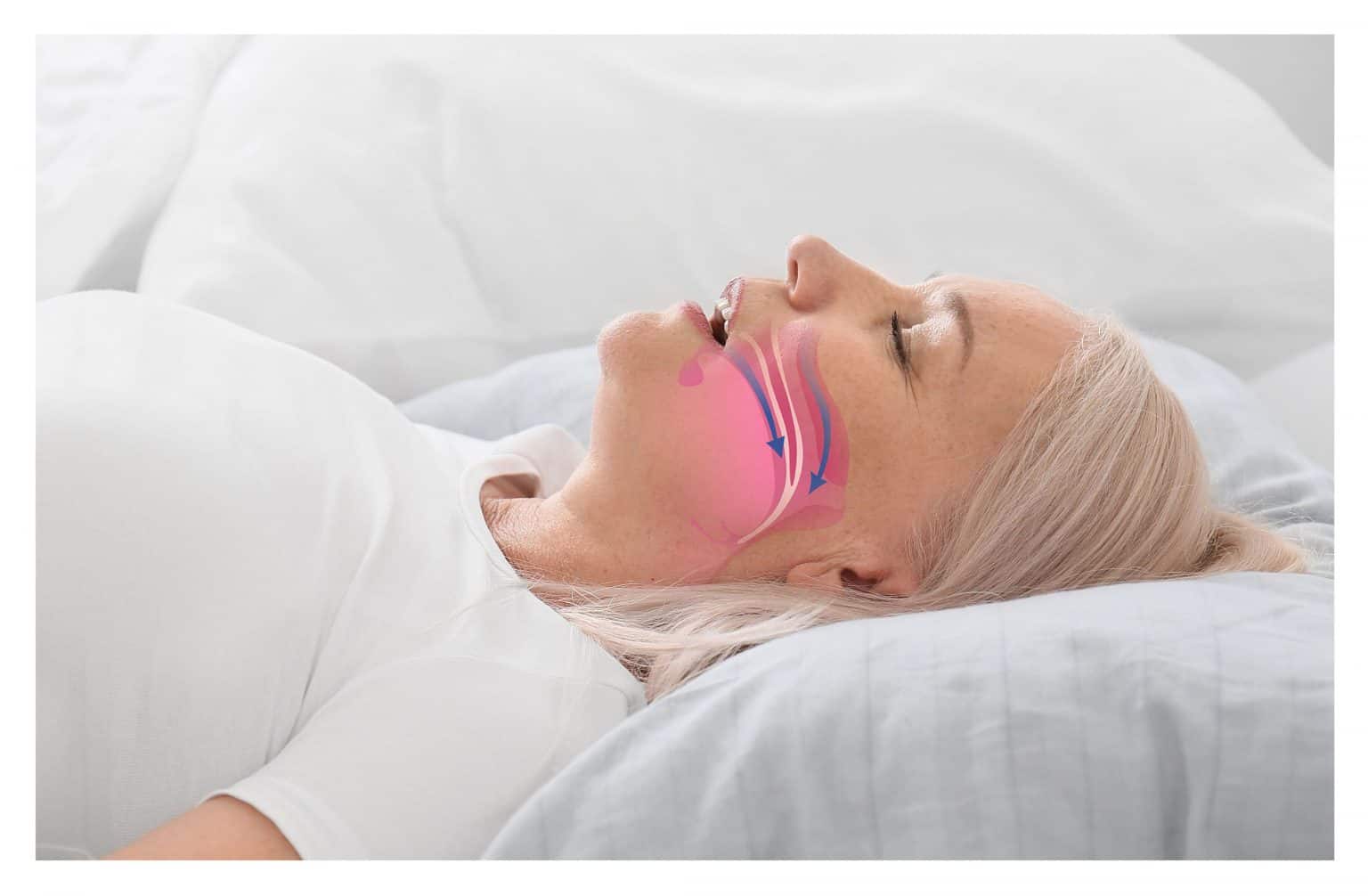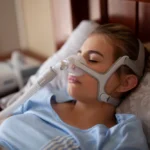Sleep is an essential part of our lives that helps our body to restore and rejuvenate the organs, their functions, and maintain a pleasant mood throughout the day. Healthy sleep is critical for every human being; however, sleep disorders are extremely common worldwide and contribute significantly to the global burden of disease.
Sleep apnea is one such disorder that can cause disturbed sleep and severely and negatively impact a person’s quality of life. Apart from sleep disturbances, sleep apnea can manifest as a variety of other health conditions such as:
- Hypertension
- Depression
- Heart disease
- Obesity
- Fatigue
Understanding Sleep Apnea
The term “apnea” refers to the cessation of breathing which specifically occurs during sleep. At this time, the muscles of the body relax, including most of the voluntary muscles of the body such as the skeletal muscles. Sleep also causes relaxation of the muscles of the tongue and the mouth, resulting in flaccidity or “floppiness.” This leads to the muscle tissue falling backwards into the air pipe that is located right behind the tongue in an area called the laryngopharynx.
Airflow through the windpipe causes the fallen muscles in that area to vibrate. This manifests as SNORING, which is a characteristic of obstructive sleep apnea. As the obstruction becomes severe, the airflow to the lungs is reduced which results in partial or complete stoppage of breathing that eventually wakes the person up from sleep.
Sleep apnea can also occur without any obstruction in airflow, which is referred to as central sleep apnea. However, obstructive sleep apnea is the most common type of sleep apnea.
Are You At Risk of Developing Sleep Apnea?
Certain conditions put you at an increased risk of developing sleep apnea. They are:
- Obesity: Overweight individuals tend to develop sleep apnea due to excessive fat deposition in the upper airway that narrows the air pipe. However, obesity plays a role in sleep apnea only 60% of the time. You don’t have to be overweight to have sleep apnea.
- Genetics: If your family member has sleep apnea, then there is a chance (4X the risk) that you might develop it too.
- Respiratory illness: People with respiratory disorders such as asthma and COPD (Chronic Obstructive Lung Disease) are at higher risk of developing sleep apnea.
- Blocked nose: Nasal obstruction due to a deviated nasal septum or nasal polyps causes mouth breathing. According to some studies, mouth breathers have a higher chance of developing sleep apnea.
- Gender: Research indicates that men are more prone to obstructive sleep apnea, but many women have sleep apnea as well.
- Habits: Smokers and alcoholics have shown to develop sleep apnea at a younger age than their counterparts.
Earlier the Diagnosis, Better the Prognosis!
Snoring is the first and most common sign of sleep apnea. The person who has sleep apnea might not be aware of their condition. And hence, their partner might be able to give a clearer indication of the duration and intensity of snoring which can be beneficial to diagnosis. The sooner you communicate with your physician about your issues, the better your treatment outcome will be.
A sleep apnea diagnosis is reached when a sleep doctor assesses the signs and symptoms of the individual. Most patients complain of disturbed sleep, feeling drowsy throughout the day, headaches, lack of concentration, and sometimes dry mouth and sore throat. The physician will then make their diagnosis based on further investigations into the patient’s history and prior complaints.
Sleep Studies
For further understanding of the condition, a sleep technician will perform a “sleep study” or “Polysomnography” to determine the quality of sleep, breathing during sleep and other parameters that aid in diagnosing sleep apnea. This is the traditional method used by the majority of physicians as the primary diagnostic tool for sleep apnea.
A sleep study can help to rule out other sleep disorders allowing the physician to fine-tune the prescribed treatment. Ognomy provides at-home sleep studies, which patients can self-administer without ever leaving their house.
Management of Sleep Apnea
The primary goal of treatment for sleep apnea is to improve the quality of sleep and to avoid any potentially serious health disorders that can result from the sleep disorder. The most important step in the management of sleep apnea is eliminating the cause.
Elimination of causes and associated disorders such as obesity, diabetes, smoking, stress, etc. can be effectively done through lifestyle modification strategies. These involve:
- Weight reduction
- Quitting habits such as smoking, alcohol consumption and substance abuse
- Controlling blood pressure
- Exercise
- Yoga and meditation
- Treating diabetes
- Positional therapy (e.g. sleeping on the side)
Lifestyle changes can significantly improve symptoms of sleep apnea. However, some patients, especially those with more significant cases, find simple lifestyle changes ineffective for their sleep apnea, and therefore, require additional therapy.
The most effective therapy in use to date for treating sleep apnea are Positive Airway Pressure appliances:
- Continuous positive airway pressure (CPAP)
- Bilevel positive airway pressure (BiPAP)
Positive airway pressure devices are worn during sleep, and effectively pump air under gentle pressure into your airway. This keeps the airway open ensuring continuous airflow.
Oral appliances are also effective in managing sleep apnea such as those that prevent the tongue muscles from falling back, thus maintaining a patent airway.
Surgical therapy is also gaining relevance in treating sleep apnea primarily due to the introduction of hypoglossal nerve stimulators and the added advantage of eliminating the long-term use of appliances. Surgery is not the first choice for the management of sleep apnea; however, in severe cases with poor positive airway pressure tolerance, it might be the most appropriate option.
Sleep apnea is a common yet serious disorder that can affect your overall health. Identifying the problem and discussing it with your physician will effectively improve your condition and reduce your risk of developing other health-related issues.
If you think you have sleep apnea, don’t worry! You can book a virtual appointment with one of Ognomy’s sleep medicine specialist who can test, diagnose and treat your sleep apnea all from the comfort of your home! Book your appointment today at patient.ognomy.com
For more information to start your journey to better sleep, download Ognomy at App Store or Google Play, or contact us today at +1 (877) 664-6669.












